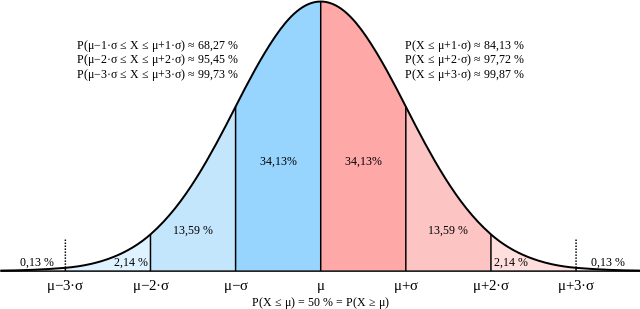
The Golden Rule can be simplified: “Do unto others as you would have them do unto you.” And this may sound like something perfect to various moral systems all around the world. But I offer a heavy criticism of the Golden Rule.
Not only it isn’t much good in theory, but humankind is (surprisingly) never guided by this.
History of the Golden Rule
You can find One of the earliest recorded versions of the Golden Rule in the Ancient Egyptian “Eloquent Peasant” story. It dates back to around 2040–1650 BCE. In this tale, the protagonist states, “Now this is the command: Do to the doer to cause that he do.”
In the ancient Greek philosophy, Socrates offers similar principle: “Do not do to others what angers you if done to you by others” (circa 469–399 BCE).
Judaism reflects it, particularly in the Torah (the Hebrew Bible). Leviticus 19:18 states, “You shall not take vengeance or bear a grudge against your countrymen. Love your fellow as yourself: I am the Lord.” This concept is echoed in various other Jewish texts and teachings.
In the New Testament of the Christian Bible, Jesus of Nazareth is recorded as articulating the Golden Rule in the Sermon on the Mount: “So in everything, do to others what you would have them do to you, for this sums up the Law and the Prophets” (Matthew 7:12, NIV).
Also, Islam expresses it in various Hadiths (sayings of the Prophet Muhammad) in One well-known Hadith states, “None of you (truly) believes until he wishes for his brother what he wishes for himself.”
Confucius, the Chinese philosopher, emphasized the principle of reciprocity in his teachings. One of his famous sayings is, “What you do not want done to yourself, do not do to others” (Analects 15:24).
While not explicitly stated as a “Golden Rule,” the concept of treating others with kindness and compassion is central to Hindu teachings. The principle of ahimsa (non-violence) emphasizes avoiding harm to others.
Golden Rule criticism and how primitive this phrase sounds
Some may acknowledge that this should be a part of every moral system on this planet. It is simple and efficient. However, I provide a heavy criticism of the Golden Rule.
We can criticize it because of its cultural variability, subjectivity, and potential for selfishness (critics contend that the Golden Rule could potentially lead to selfish behavior if individuals only consider how they would like to be treated without taking into account the needs and preferences of others), economic inequality (treating others as one would like to be treated may not necessarily address the underlying causes of social, economic, or political disparities).
Maybe good in theory, nobody follows it. Let’s dive into biology
“Do unto others as you would have them do unto you.” Yes, most of the people on this planet desire to live. However, there is one huge problem and we call it biology.
The average ejaculation contains around 100 million sperm cells. Women are born with approximately 1-2 million eggs, but only a fraction of these eggs will ever mature and be released during ovulation over the course of a woman’s reproductive years.
When you consider the potential combinations of different sperm and egg pairs, the number of possible genetic combinations is incredibly large. Each sperm cell carries a unique set of genetic information, as does each egg. When one sperm fertilizes one egg, it creates a genetically distinct individual.
To calculate the number of potential genetic combinations, you would multiply the number of sperm by the number of eggs. For example, if there are 100 million sperm and 1 million eggs available for fertilization, the total number of potential genetic combinations would be 100 million multiplied by 1 million. It would result in 100 trillion possible combinations.
In reality, various factors such as fertilization success rates, genetic compatibility, and environmental factors will significantly reduce the actual number of individuals who are conceived and born.
100 trillion possible of human beings. And justice?
Where is any justice from who is going to be born and the 100 trillion army of never-born shadows?
Since parents want to use the Golden Rule which I criticize, they should – as laughable and impossible as it sounds – give an opportunity to every single possible person. Where is justice?
Nearly everyone would wish to be born, but he or she denies the opportunity to others.
Nobody says that 100 trillion babies should be born, however, your uniqueness of being born should also oblige you to something.
Humans compete who will have more children
Homo sapiens compete for everything (for example, scarce resources, sexual partners). So the most moral thing would be for everyone to make sure everyone has as many kids as they can. And then there are 100 trillion possible human beings.
Someone has monetary issues and cannot have babies, but you are well-funded and can have babies, yet you don’t care about the Golden Rule. Because humans compete with each other.
Diseases cure and the Golden Rule criticism
In 2020, global GDP amounted to about 84.96 trillion U.S. dollars.
What about the cancer cure? The fiscal 2024 proposal for $9.99 billion would mark a significant jump over the $7.77 billion in the 2023 proposal and $7.61 billion in 2022. The NCI’s actual spending level is $6.9 billion right now.
Do you have cancer and there are poor cures? Or do you have a mental illness just like I do and there is basically no research for it? Do unto others as you would have them do unto you.” Really? The Golden Rule criticism is due.
Difficult life situations and the Golden Rule
You wouldn’t like to lose your job, someone else does. They can discriminate against you because of race, religion, gender, or appearance. You can have financial hardship, you may like someone to intervene in a difficult life situation.
Someone is dealing with mental health issues, addiction, and problematic parenthood, he or she may be lonely, homeless, or disabled.
I have basically never seen this to be used in the aforementioned situations.
The rule can be vague and open to interpretation. It does not provide clear guidance in situations where the needs and preferences of individuals conflict. For example, in hierarchical relationships like employer-employee or parent-child, applying the same treatment might not be appropriate or effective (1).
How good life you will have and the Golden Rule
The quality of life is distributed normally (by the Gaussian curve). Some people are experiencing heaven on earth, while others are experiencing hell.
People are taking moral steps that make life easy, livable, or even ecstatic, just as the Golden Rule encourages. No, that was a joke!

Extreme situations
In extreme situations, the Golden Rule may not offer practical solutions. For instance, it does not address how to respond to someone who intends harm or in scenarios where reciprocal treatment is not possible or ethical. This limitation points to its inadequacy in providing moral guidance in all situations (2).
Immanuel Kant criticized the Golden Rule for not accounting for differences in situations. For example, a convicted criminal might argue against imprisonment by appealing to the Golden Rule, suggesting that the judge wouldn’t want to be imprisoned. Kant’s own moral philosophy, the Categorical Imperative, seeks to address such issues by proposing more universally applicable maxims (Cambridge).
Self-interest vs. altruism
The Golden Rule is often critiqued for its reliance on self-interest as a basis for moral behavior. It assumes that one’s own preferences are a suitable benchmark for treating others, which can overlook the importance of understanding and addressing others’ unique needs independently of one’s own desires (3).
Animalistic, simplistic, and obsolete
One rule as the main root of a moral system? Give me a break! The rule is deeply philosophically flawed, offering only little framework and nobody actually adheres to it.
We should find such a moral system (maybe utilitarianism) that is scientifically oriented and brings real moral features, unlike this moral nihilism we live in even with the stupid Golden Rule!
Leave a Reply